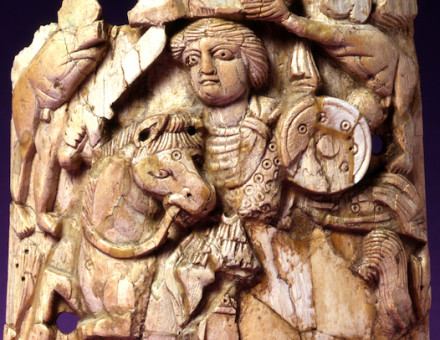The Historian as Time Traveller
Ian Mortimer, who has been an archivist and a poet before becoming a medieval historian and biographer, describes why a blend of empathy and evidence is the key to getting the most out of history.
I was about ten years of age, standing alone in the ruined hall of Grosmont Castle in South Wales. The wind rustled the leaves of the nearby trees as I looked up at the empty space where Maud, mother of the great Duke of Lancaster (who was born in this castle), had sat in the early fourteenth century. I pictured the decoration on the walls, the table on the daïs, the tablecloth, the dishes with rich sauces, the salt, and the servants bustling over the dinner. I imagined Lady Lancaster’s expression in the weeks after the birth, coming unsteadily into the hall from her solar chamber, smiling, receiving visitors and messengers. In my mind’s ear I heard her speaking to the chaplain seated beside her during a meal, and her conversation with her husband, Henry, Lord Lancaster, after his return from a hunting trip. Then I looked at the guidebook. On the page, these people were as dead as the stones of the ruined castle.





